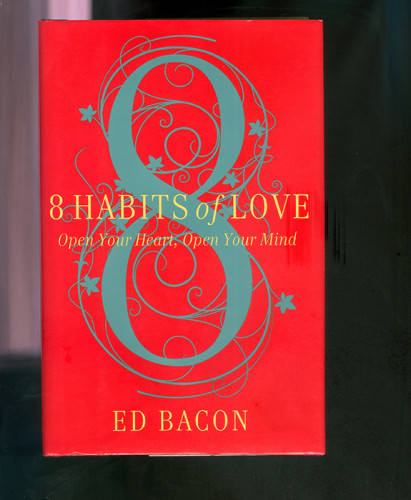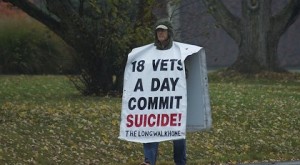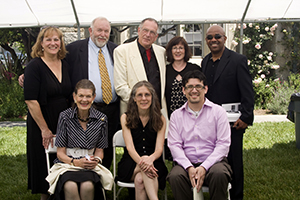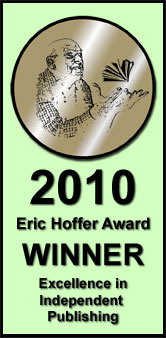Love and Isolation
“8 Habits of Love” is a book by the Reverend Ed Bacon, rector of All Saints Church, Pasadena, California, where I am a member. I don’t consider myself a total Christian, since I have not accepted the divinity of Christ. I like what he preached, and I am a committed Vipassana Buddhist, but I find the progressive stance of this Episcopal Church, whose motto is “Whoever you are and wherever you are on your journey of faith, you are welcome here” resonates with me. Ed Bacon’s most interesting point in his book, which speaks of The Habits of Love: Generosity, Stillness (this communicates with me because I am a meditator), Truth, Candor, Play, Forgiveness, Compassion, and The Habit of Community. Ed states:
“You cannot be healthy alone; you cannot heal alone, you cannot flourish alone; you cannot cast off fear alone; you cannot be a lover alone; and you cannot access the Beloved inside you and inside other people alone. Understood from this perspective, we are not a human race, we are the human family.”
These words had me pondering the condition of humans with mental illness. I think numerous people with mental illness see themselves as alone. Take for example, the soldier who returns home from the adrenaline-saturated life of combat and finds himself in a humdrum world of work, more work, or no work, to former friends and families who will never comprehend what he has experienced, and who are baffled by his distance from all that was once close to him. He finds himself alone in a world that no longer makes sense. Suicide would seem a logical relief from the painful experiences he carries with him. The statistics are horrifying. Forbes Magazine reports that “for every veteran killed by enemy combatants, 25 veterans kill themselves.” Because they perceive themselves as alienated and isolated, removal from the world must seem a good alternative.
This feeling of aloneness and isolation from normal existence is the feeling of those with schizophrenia and bipolar disorder. Dr. Chris Amenson, Director of the Pacific Clinics, Pasadena, California, in his remarks to the NAMI San Gabriel Valley Chapter spoke how, at its onset, usually in the early teenage years, schizophrenia separates the afflicted from family and contemporaries. As the voices he or she hears proliferate, the young schizophrenic begins isolate from family, begins to lose interest in school, and starts to lose friends. A downward spiral begins. Lower self-esteem brings lower expectations in life. Failure becomes a personal reality. Dropping out from school, unable to gain anything but the most menial work positions, without a circle of friends, the schizophrenic becomes isolated, drifts into the world of drugs, and ends up with recurring mental hospitalizations. A life is ruined. Life expectancy diminishes to an average 53 years.
This is an existence without love. Love from family may be there, but often it is negated. There is little generosity, compassion, or forgiveness for others as the afflicted is focused on his or her self. There is little truth because avoiding what is evident is required by the sick person to avoid detection or continued harassment. Delusion, which can be considered a form of lying, becomes a way of life. There is little play as actions become robotic and driven to endless repetition. The schizophrenic person is not free and has no stillness because the mind is a cavern of chaotic thoughts. Fortunately there is hope; Dr. Amenson stated that schizophrenia is a preventable illness. The key is early intervention, either with drugs or other forms of therapy. There is hope for those whose illness is life long. Newer drugs and consoling can help these people to live lives that are not marginalized nor institutionalized. At Pacific Clinics many of the employees who assist others have schizophrenia. They have learned how to make the voices they hear to be like a radio playing in background. They have found a community, and they receive love, which opens the doors to all the other habits of love.
Those with bipolar disorder similarly feel alienated, alone, and misunderstood. When I speak for myself, who has bipolar disorder, I believe I speak for others also in many ways. My fellow bipolar comrades have told me of their experiences feeling isolated and alone. From my earliest childhood, I felt different, as if I were a creature from another planet placed in a family with which I had nothing in common. My earliest memory is hitting another child with a toy hammer because he was messing with my toy truck in the sandbox. I was disciplined often for bad behavior, and I had few friends. School was an abomination. I knew I was smart, but I could not keep up with my classmates. Mathematics was a total mystery, and reading difficult. My family sent me to a special school one summer to improve my reading ability. They diagnosed me as dyslexic with emotional problems. I had a lot of anger and I used that anger to propel me. I would work three times harder than other students to accomplish a task. As I grew into my teenage years, I started to have bouts of depression and episodes of mania, but no one did anything to help me. Rebellion became my personal expression. The beat poets with their disdain for American middle class life and Jack Kerouac, the free explorer of the under culture, were my heroes. In high school I hung out with the guys, who like me from a comfortable suburb, went to dance clubs favored by the gangs of Watertown and Dorchester, the working class enclaves of Boston. We would go to Harvard Square and get students to buy liquor for us. On weekends I was often drunk.
Somehow I managed to get into Yale. I always thought it was because my father, my grandfather, and my great-grandfather went there, so I was accepted from the waiting list as a legacy student. I never felt I fit in. All the students were smarter than I. It was depressing. The only thing I had going for me was that I was wilder than most of the other students. Once on a dare, drunk in a dorm room on the fourth floor during a party in the middle of a snowy winter, I dove out the window into a snow bank below. I was unhurt. My feat amazed my classmates. It wasn’t enough. My odd behavior got me kicked out of the room I shared with three others, and I ended up in a remote room, alone, while failing most of my classes. It was here that I drank a bottle of scotch and took 150 aspirin tablets in my first suicide attempt. I was hospitalized given some psychiatric treatment that I hated, and released. I took a year off and returned to finish my degree.
I vowed I would never return to a psychiatrist again. In the 1980s I dropped out from a career I didn’t like — as an architect — and moved into an illegal art community living in warehouse spaces not zoned for habitation in downtown Los Angeles. It was here that I became a marijuana addict and began to experience full-blown bipolar episodes. I lived alone believing no one could deal with me or me with them. I had numerous sequential episodes of mania, during which I would stay up for days on end writing, painting, and designing, then collapse into a state that I called “the black brain,” with depression so terrible I would lie in bed for a week reading, contemplating suicide and release from the absurd existence of our society. The books of existentialist Albert Camus were a favorite. Camus wrote in ‘An Absurd Reasoning’: “There is but one truly serious philosophical problem, and that is suicide. Judging whether life is or is not worth living amounts to answering the fundamental question of philosophy… At any street corner the feeling of absurdity can strike any man in the face. It happens that the stage sets collapse. Rising, streetcar, four hours in the office or the factory, meal, streetcar, four hours of work, meal, sleep and Monday Tuesday Wednesday Thursday Friday and Saturday according to the same rhythm — this path is easily followed most of the time. But one day the “why” arises and everything begins in that weariness tinged with amazement.”.
The few friends I had encouraged me to go see the psychologist of artists, not a psychiatrist, because I thought they were all crazier than I, but to a psychologist. I agreed to go; and he helped me. Dr. Ed Wortz became my mentor, and he led me to Vipassana Meditation. I moved out of my loft for a time; lived in The Community Meditation Center in the Koreatown of Los Angeles; and studied meditation practice with Shinzen Young. This discipline helped mitigate for a time my affliction with bipolar disorder. I stopped smoking marijuana, returned to my loft, returned to my architecture career, and later married.
It didn’t last. I went into architectural practice with my wife, but as the success of our firm increased, my stress level went sky-high and my bipolar disorder returned with vengeance. Seeking relief, I found crack cocaine, the epidemic of the 1990s, and became an addict with my own particular obsession of cross-dressing. I would stay out all night, roaming around Skid Row seeking out the most dangerous situations to put myself in. I had to leave my practice of architecture. In 2001 after another failed suicide attempt in which I was going to jump off a freeway bridge, my wife, who miraculously stayed by me, and my doctor convinced me to go to a mental hospital. It was there that I was treated by a sensitive and caring psychiatrist, and I began to recover. I began to find love. My wife’s love, my psychiatrist’s love — she remains my doctor to this day and she has become a friend, are the first two pillars of my support network, and I began to feel less alienated and alone.
DBSA (Depression and Bipolar Support Alliance) became the third pillar of my support network. It was in these meetings that I found a group of people, my fellow afflicted brothers and sisters, who understood me and accepted me just as I was. From them I felt love, and toward them I directed my love. They gave me the strength to become the person I always wanted to be, and they provided for me a way to help others. Later I became a member of the All Saints Community, and there I found another pillar of support, source of love, and a means to provide love to many others. I shall always be a bit of an odd duck, but I accept that in myself, and my community of beloved accepts that in me.
Life is still absurd, but like Camus I have found a way to go on. My way is in a beloved community. Healing from bipolar disorder began with my hospitalization, drugs, and therapy, and will continue all the days of my life in the community of my beloved. In the past I could never say, “I love you,” but now I say it all the time and with each iteration of these words I feel stronger and more embraced in the human community. Ed Bacon in his book says, “I am because we are.” There is great truth in this statement, but as a Buddhist, I want to amend his statement and say, “I am not, therefore we are.” However that is a viewpoint to be discussed in another context. I have a beloved friend, who is dying of cancer, after a lifetime of helping others. She said I don’t think anyone can be truly healed who has not felt loved. I believe she is correct. Mental disorders can be treated, and the person restored, but without love they can never be complete.








Comment by Swayna on 9 March 2014:
This is a comment to the webmaster. Your website is missing out on at least 300 visitors per day. I have found a company which offers to dramatically increase your visitors to your site: http://is.gd/qINWgK They offer 1,000 free visitors during their free trial period and I managed to get over 30,000 visitors per month using their services, you could also get lot more targeted traffic than you have now. Hope this helps 🙂 Take care.
Comment by coreytoney on 3 June 2014:
Interesting article, thanks! I’ve subscribed to your website posts. Nice ideas in this blog. I agree. Welcome to Insight Choices, We are a team of mental health professionals located in the West Hollywood – Los Angeles area. Our mission is to help you thrive in spite of your mental health issues. Get in touch with us: 8265 Sunset Blvd.Suite 204 Los Angeles, CA 90046 Tel: (323) 375-0950 Fax: (323) 315-5240 Email: help@insightchoices.com
Los Angeles Psychiatrist
Comment by Gucci Outlet on 7 August 2014:
excellent post, very informative. I ponder why the opposite experts of this sector don’t notice this.
You must proceed your writing. I am confident, you have a huge readers’ base
already!
Comment by Www.Youtube.Com on 4 September 2014:
I am not certain the place you are getting your information, but good topic.
I must spend a while studying much more or understanding more.
Thanks for fantastic information I used to be searching for this info for my mission.
Comment by Tõlge on 22 September 2014:
It’s nearly impossible to find experienced people about this topic, however, you sound like you know what you’re
talking about! Thanks
Comment by home remodeling on 29 September 2014:
Fabulous, what a website it is! This blog gives helpful facts to us, keep it up.
Comment by street food of india on 26 January 2015:
Terrific post however , I was wanting to know if you could write
a litte more on this topic? I’d be very grateful
if you could elaborate a little bit further. Thanks!
Comment by Kurtis on 4 March 2017:
You ought to be a part of a contest for one of the
most useful blogs online. I most certainly will highly recommend this site!
Comment by Whatbook on 28 April 2017:
A very good post, I have read the book ‘8 habits of love’ and found it to be a very well written book.
Comment by health on 31 August 2018:
Good info. Lucky me I discovered your site by chance (stumbleupon).
I have saved as a favorite for later!
Comment by Williemae on 20 September 2021:
Hey! This is my first visit to your blog! We are a collection of
volunteers and starting a new project in a community in the same niche.
Your blog provided us beneficial information to work on. You have
done a outstanding job! yl (Williemae)
Comment by view on 30 May 2022:
Hi there, I desire to subscribe for this blog to take most recent updates, so where can i
do it please help.
Comment by carlton on 12 September 2022:
I have provided no new blogs in a long time. I am thinking of writing some new stuff.